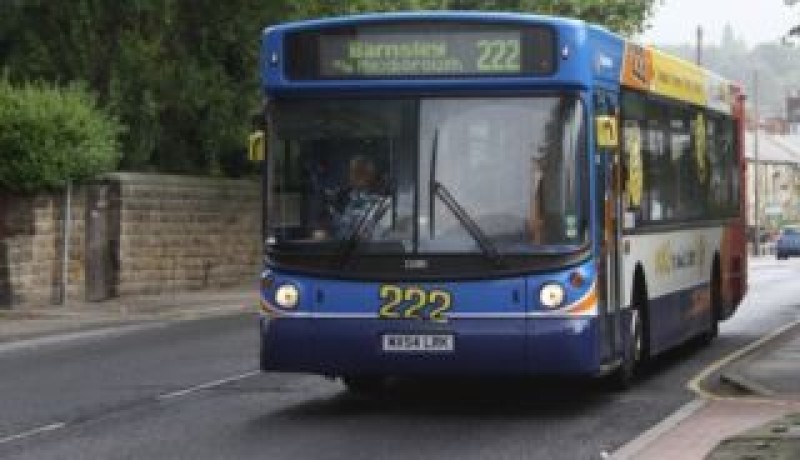TRANSPORT bosses who carried out a review into Barnsley services’ long-running cuts, rising fares and timetable changes which ‘cut off’ communities have urged more funding to be provided to address a decline in passenger numbers.
The commission, chaired by MP Clive Betts, shared its findings and recommendations with Dan Jarvis, Mayor of the Sheffield City Region and Barnsley Central MP, who commissioned the review last year.
Insufficient funding, lack of leadership and a lack of accountability are the root causes for a decline in passengers, according to the damning report.
Following the review, Sheffield City Region Mayor Dan Jarvis has said the South Yorkshire Passenger Transport Executive (SYPTE) will be scrapped and merged into the authority’s executive team.
The review highlighted concerns about SYPTE’s leadership of bus partnerships, as well as their ‘poor approach’ to handling and resolving customer complaints about service changes.
“Our bus system is vitally important for our economy and environment, and for too long it has been neglected,” Dan said. “Passengers have suffered - following the findings of the review and its recommendations, we owe it to them to provide a first-class bus service and one they can rely on.
“In difficult circumstances, with yearly cuts to budgets, we have lost sight of what a good bus service looks like and it’s time that we regain this perspective.
“This is not going to be an easy task, especially in the current climate of a health and economic crisis, but we do now have a golden opportunity to build back better, providing a bus system that properly serves passengers, the economy and the environment.
“There are a number of actions that I am going to put in place to start the process of improving our bus services. Firstly, there is a clear need for change with SYPTE and I will be addressing this in the coming months with a view of integrating them fully within the Sheffield City Region Mayoral Combined Authority.
“I’m also keen to look at how we improve services for disabled users and young people under 25, and I have directed my officers to explore what is possible.
“I want to be clear that rapid change will not come overnight, and I will be working with local leaders and partners to urge government to put in place the necessary funding needed to help us make improvements.
“We have a big job to do but if we all play our part, we can have a world class bus service locally - one that properly works for its passengers and that we can be proud of.”
SYPTE bosses welcomed the review’s findings and recognised that ‘fundamental change’ is needed.
The writing was already on the wall for the under-fire body as Mayor Jarvis publicly called them out in February after he said their role had been ‘more about the executive than the passenger’.
SYPTE executive director, Stephen Edwards, added: “The review highlights how vital a strong, reliable, interconnected bus network is for people and the challenges there have been in delivering this in recent years.
“We welcome the report’s recognition that more investment, robust leadership, greater accountability and firm commitment is needed, to secure a sustainable and thriving bus network that is responsive to customer needs.
“It is no secret that successive years of public transport funding cuts has had a negative impact on the bus network and its customers.
“We recognise that we have not always been able to get things right.
“Fundamental change is needed to address bus decline and the review recommendations offer an opportunity to shape a better, more integrated bus network for the future.”
Barnsley Council’s scrutiny committee members referred their concerns over public transport services in the town to Sheffield City Region bosses which saw the board’s chairman, Coun Jeff Ennis, take up a role on the review panel.
Coun Ennis said: “Committee members raised concerns regarding public transport services both to and from Barnsley as well as connectivity around the borough.
“Given the role of Sheffield City Region and current work being undertaken, the committee felt the issues raised would be better served by oversight and scrutiny by the regional committee, therefore a formal referral was made to them.
“We were the first local authority to refer an issue and we’ll be looking to make improvements.”




























